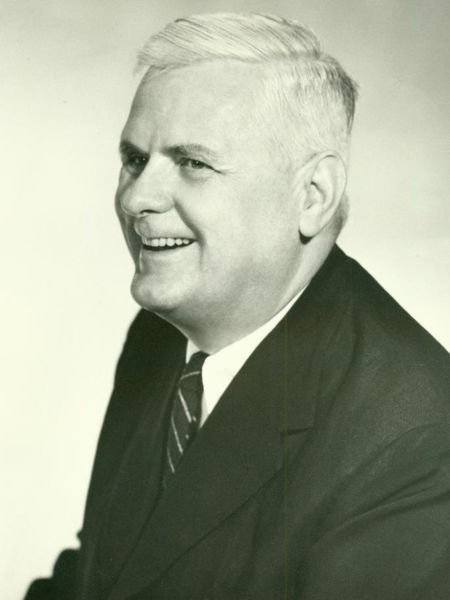Alonzo Church
From Wikipedia, the free encyclopedia
• Learn more about citing Wikipedia •Jump to: navigation, search
This article is about the mathematician and logician. For the president of the University of Georgia, see Alonzo S. Church.
Please help improve this article by expanding it.
Further information might be found on the talk page or at requests for expansion.
This article has been tagged since March 2007.
Alonzo Church
Alonzo Church (1903–1995)
Born 6/14/1903
Washington, DC, USA
Died 8/11/1995

Residence USA
Nationality USA
Field Mathematics
Institutions Princeton University 1929-1967 University of California, Los Angeles 1967-1995
Alma mater Princeton University
Academic advisor Oswald Veblen
Alonzo Church (June 14, 1903 – August 11, 1995) was an American mathematician and logician who was responsible for some of the foundations of theoretical computer science. Born in Washington, DC, he received a bachelor's degree from Princeton University in 1924, completing his Ph.D. there in 1927, under Oswald Veblen. After a post-doctoral fellowship at Göttingen, he taught at Princeton, 1929–1967, and at the University of California, Los Angeles, 1967–1990.
Contents [hide]
1 Mathematical work
2 Students
3 Death
4 See also
5 Books
6 Sources and external links
[edit] Mathematical work
Church is best known for the following accomplishments:
His proof that Peano arithmetic and first-order logic are undecidable. The latter result is known as Church's theorem.
His articulation of what has come to be known as Church's thesis.
He was the founding editor of the Journal of Symbolic Logic, editing its reviews section until 1979.
His creation of the lambda calculus.
The lambda calculus emerged in his famous 1936 paper showing the existence of an "undecidable problem". This result preceded Alan Turing's famous work on the halting problem which also demonstrated the existence of a problem unsolvable by mechanical means. He and Turing then showed that the lambda calculus and the Turing machine used in Turing's halting problem were equivalent in capabilities, and subsequently demonstrated a variety of alternative "mechanical processes for computation." This resulted in the Church-Turing thesis.
The lambda calculus influenced the design of the LISP programming language and functional programming languages in general. The Church encoding is named in his honor.
[edit] Students
Church's doctoral students were an extraordinarily accomplished lot, including C. Anthony Anderson, Peter Andrews, Martin Davis, Leon Henkin, John George Kemeny, Stephen Kleene, Michael O. Rabin, Hartley Rogers, Jr, J. Barkley Rosser, Dana Scott, Raymond Smullyan, and Alan Turing. See [1].
[edit] Death
He died in 1995 and was buried in Princeton Cemetery.
Academic Genealogy
Notable teachers Notable students
Oswald Veblen C. Anthony Anderson
Peter Andrews
George Alfred Barnard
Martin Davis
Leon Henkin
David Kaplan
John George Kemeny
Stephen Kleene
John McCarthy
Michael O. Rabin
Hartley Rogers, Jr
J. Barkley Rosser
Nathan Salmon
Dana Scott
Raymond Smullyan
Alan Turing
[edit] See also
Church-Turing thesis
Church-Turing-Deutsch principle
Higher-order logic
Universal set
[edit] Books
Alonzo Church, Introduction to Mathematical Logic (ISBN 0-691-02906-7)
